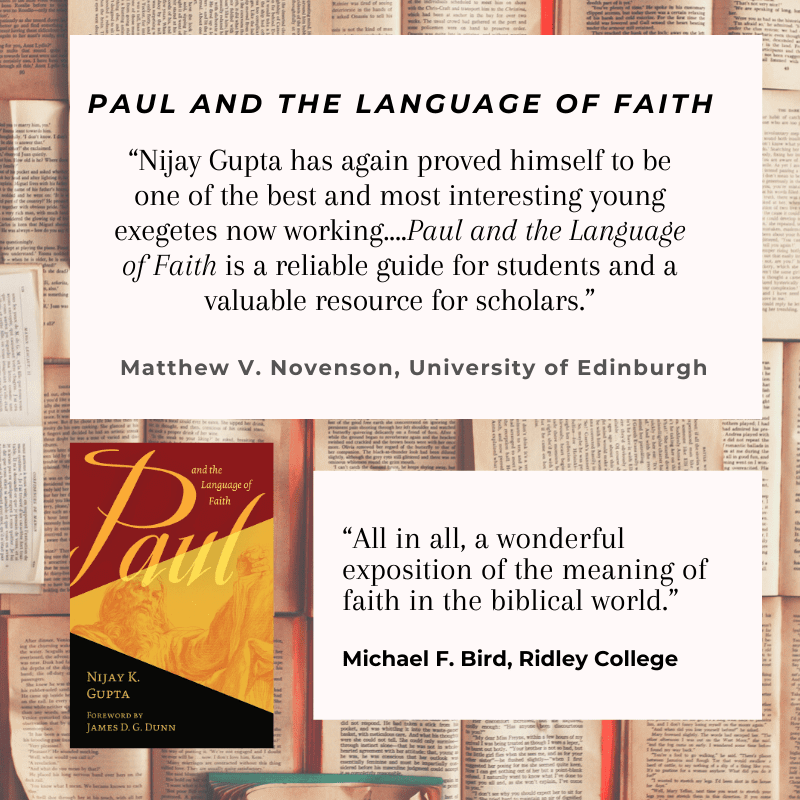For #1: see “Faith is Something You Do“
For #2: see “Faith Language Points to Covenant”
Now, #3: “Surprised by Luther”

Chapter 2 of Paul and the Language of Faith presents a short history of reception of Paul’s faith language. It begins with the Apostolic Fathers, and covers some of the Church Fathers, medieval theologians, Reformation writers, and modern Pauline theologians. I learned a lot from this tour through history, but what was most insightful for me was sitting down and reading Martin Luther’s Galatians commentary. I was especially interested in how Luther used “faith” language. I readily admit I was expecting Luther to articulate and repeat a theology of “justification by faith,” since that was what I had always been taught about Luther.
Of course, in his Galatians commentary Luther does rail against a works-righteousness form of the Christian religion. He also placed “faith” at the center of Christian theology. He referred to faith as “the highest worship, the prime duty, the first obedience, and the foremost sacrifice” (Galatians, 65). He also called it “the height of wisdom, the right kind of righteousness, the only religion” (Galatians, 60). Throughout his commentary, Luther, in my view, does not present “faith” as a status of the sinner whom God has forgiven in Christ per se. Of course, Luther believed this to be true, but his use of faith language went deeper than “justification by faith.” Here is what I write in Paul and the Language of Faith, which favors a “union-with-Christ Luther”:
Luther was vehemently opposed to boiling down Christianity to a correct doctrine or a set of doctrines (of any kind); rather, it is in and through Christ, through faith in Christ, that one’s sins are forgiven. For Luther, faith is not a thing in and of itself, but a means of relating to Christ, connecting oneself to Christ: “We say, faith apprehends Jesus Christ, Christian faith is not an inactive quality in the heart. If it is true faith it will surely take Christ for its object. Christ, apprehended by faith and dwelling in the heart, constitutes Christian righteousness, for which God gives eternal life” (Galatians, 42–43). This explanation of Luther’s theology of faith could make it appear that Luther had a strong participationistic theology; I do not claim to be an expert on Luther’s thought, but it is clear that he could express rather clearly just such a notion: “Faith connects you so intimately with Christ, that He and you become as it were one person” (Galatians, 52). [PLF, p 27]
I had imagined, at first, that I would have to refute Luther or point out the flaws in his reading of Paul’s faith language. In the end, though, I found it insightful, refreshing, and deeply resonant with the “covenant” approach that I take to Paul’s use of pistis.
For a more detailed study of Luther’s theology and his faith-works interpretation, see Stephen Chester, Reading Paul with the Reformers (201-217)














